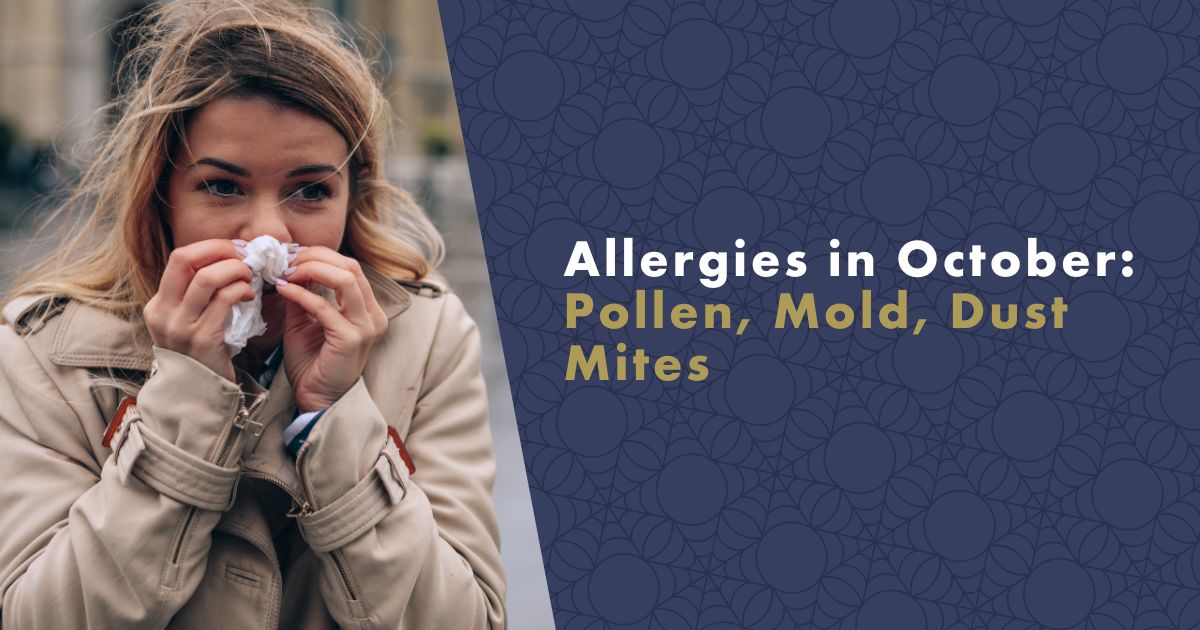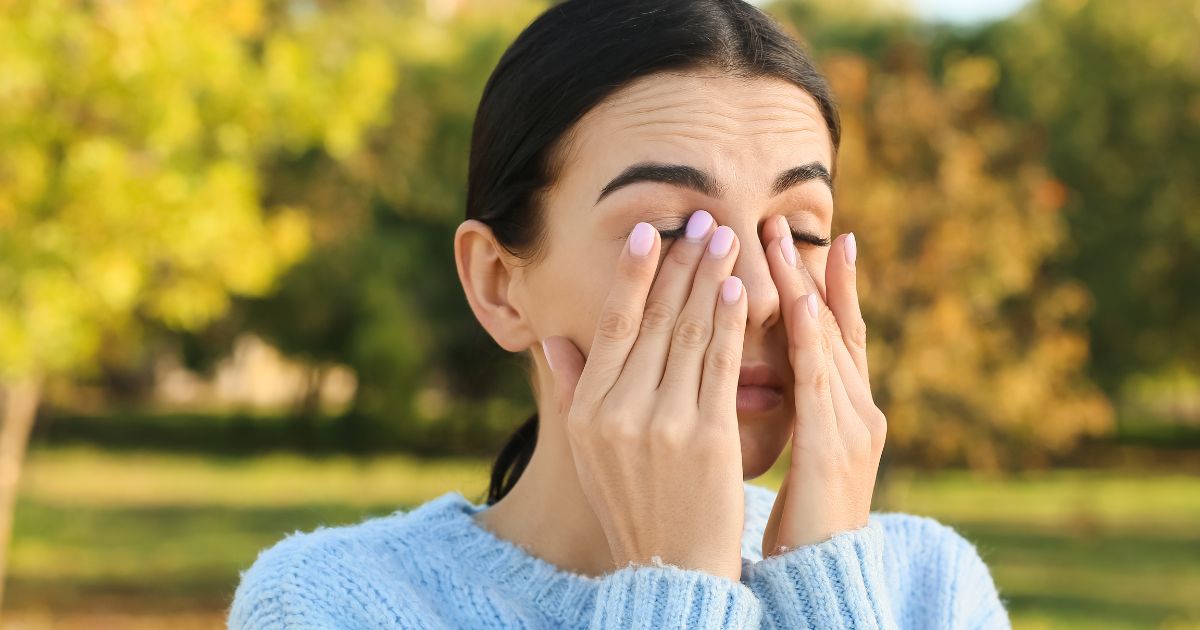Many allergy sufferers will surely find relief in the fall because the main pollen season is coming to an end. But unfortunately, that doesn't mean that people suffering from allergies will have peace in October. In this month, mold, dust mites, and pollen can still bother you.

Most Common Allergens in October
Allergies can occur even in the early days of autumn, especially if summer is still lingering. The most common allergies in October include:
- Allergy to pollen: Pollen is one of the triggers for allergies in October. In October, it can cause problems especially pollen from common reed, artemisia and ragweed. Plants release pollen into the air, which can cause rhinitis, itching, burning eyes, or coughing in allergic individuals.
- Allergy to mold: Damp autumn weather can lead to the growth of mold. People with mold allergies may experience breathing difficulties, sneezing, and fatigue.
- Allergy to dust mites: In households, you may be bothered by dust mites. Their droppings can cause itching and rashes.
What Are the Symptoms of Allergies?
Allergy symptoms in October can vary for each individual, but the main ones include runny nose, a feeling of a blocked nose, burning and itching eyes, cough, and fatigue.
If symptoms persist, consult a doctor.

Tip: How to recognize an allergy? Read the article: How to Know if You Have Allergies: Signs and Symptoms.
Dealing with Allergies
If you're struggling with allergies in October, you can take the following 5 steps to improve your condition:
1) Consult with a Doctor
If you suspect allergies, it's crucial to discuss it with a doctor. A specialist can perform allergy tests and recommend appropriate treatment.
2) Use Antihistamines
Antihistamines are medications that can relieve symptoms of allergies, including itchy eyes and blocked nose.
#produkty#https://www.nanospace.store/drops-and-sprays/
3) Avoid Allergens
If you know what you're allergic to, you can try to avoid these allergens. In your home, you can use air purifiers or humidifiers.
Tip: Allergy to mold: Everything you should know.
4) Monitor the Weather
Keep in mind that weather can affect the amount of allergens in the air. Monitor the weather forecast and adjust your activities accordingly.

You can also follow our pollen calendar.
5) Immunotherapy
For some allergy sufferers, immunotherapy may be effective, which is a long-term treatment that helps reduce allergic reactivity.
Learn More About Allergies:
Frequently Asked Questions
What are the most common allergies in October?
In October, the most common allergies are pollen (common reed, artemisia and ragweed), mold, and dust mites.
What medications are used to treat allergies?
Antihistamines and corticosteroids are often used for allergy treatment.
How long do allergies last?
Allergies can last for several weeks to months, depending on exposure to allergens and treatment.
Can allergies in October be prevented?
Although allergies cannot be completely prevented, you can reduce your exposure to allergens with appropriate measures.
What are the most common symptoms of dust mite allergy?
The most common symptoms of dust mite allergy are itching skin, rashes, and breathing difficulties.
Sources
- BEHBEHANI, N., et al. The seasonal variation in allergic rhinitis and its correlation with outdoor allergens in Kuwait. International archives of allergy and immunology, 2004, 133.2: 164-167.
- CHERVINSKY, Paul, et al. Montelukast for treating fall allergic rhinitis: effect of pollen exposure in 3 studies. Annals of Allergy, Asthma & Immunology, 2004, 92.3: 367-373.
- BASS, Diana J., et al. Late summer and fall (March–May) pollen allergy and respiratory disease in Northern New South Wales, Australia. Annals of Allergy, Asthma & Immunology, 2000, 85.5: 374-381.
- LEVY, D. A., et al. Immunologic and cellular changes accompanying the therapy of pollen allergy. The Journal of clinical investigation, 1971, 50.2: 360-369.
- LAKE, Iain R., et al. Climate change and future pollen allergy in Europe. Environmental health perspectives, 2017, 125.3: 385-391.

